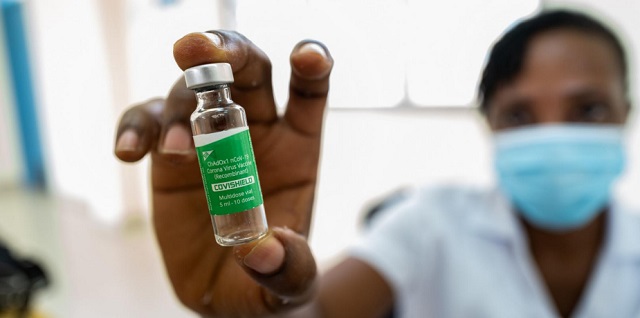

Aspen Pharmacare mulls switch to other manufacturing efforts
Africa’s first COVID-19 vaccine manufacture, Aspen Pharmacare of South Africa, has been hit by a serious slump in orders that threatens its future.
Aspen Pharmacare is producing, pricing and selling its own branded version of the Johnson & Johnson’s COVID-19 vaccine, dubbed Aspenovax. The partnership agreement between Aspen Pharmacare and J&J was signed in March causing excitement and hope that the African continent will finally manufacture its own COVID-19 vaccines.
At the time, Stavros Nicolaou, senior executive at Aspen, told journalist that their goal was to contribute toward building local vaccine manufacturing capacity on the continent.
According to reports, Aspen Pharmacare lead manufacturing partner, Johnson & Johnson has suffered due to the slump in demand which has led to costly inventory write-offs. Aspen Pharmacare has not been spared either.
Aspen Pharmacare Holdings Limited initially planned to work with a 450 million-dose annual production capacity which could be boosted to 700 million doses by February 2023. Instead, the company is suffering because it has not received any orders for its Aspenovax vaccine and even the lower450 million-dose annual production capacity might not be met because of the slump in demand.
Aspen Pharmacare Holdings Limited, which is headquartered in Durban city, South Africa, is a multinational South African pharmaceutical company founded in 1850, and the largest drug company in Africa. Its revenue as of 2022 stems mostly from trading commercial generic drugs, according to Wikipedia.
The manufacturer has had no orders for the Aspenovax vaccine and with no new orders from J&J beyond August, Aspen Pharmacare is mulling a shutdown of the COVID-19 vaccine.
Only a fifth of adults in Africa are fully vaccinated against COVID-19, according to the Africa Centres for Disease Control and Prevention (CDC). It’s a far cry from the goal to vaccinate at least 70% of its adult population, or around 800 million people.
Shortly after the Reuters reported this story, the Africa CDC said it would help stimulate demand for the vaccine, according to the news service.
If orders don’t start coming in, Aspen would be forced to transition its COVID-19 production lines to manufacturing anesthetics, Nicolaou recently told Reuters.
Africa received little help on the vaccination front throughout the pandemic. A year after the first COVID-19 vaccines were administered in places like the U.S., the continent had received just 3% of the world’s vaccine supplies.
Demand for COVID-19 vaccines is waning not just in Africa, but worldwide. Pfizer partner Biovac warned of a slump back in May, while AstraZeneca’s partner Serum Institute of India had about 200 million doses sitting in a stockpile back in April.
This article was originally published on https://www.independent.co.ug
